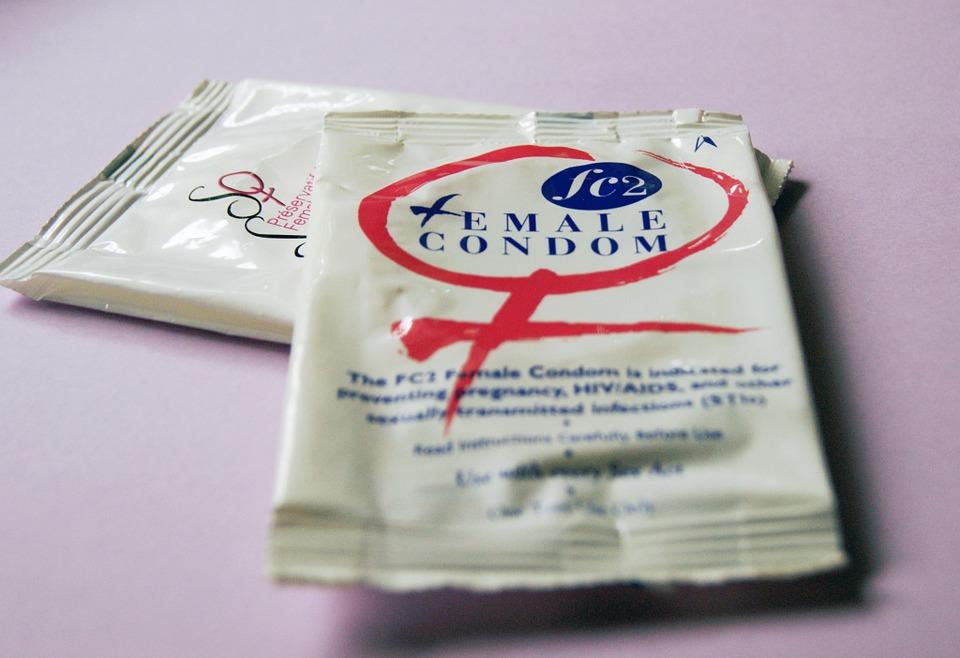The birds and the bees
Sex education is often absent or simply ignored, leaving young people to engage in sexual activities without having the relevant information.
Ester KamatiAbstinence is cool and is often the first tip someone would give, when the topic of sexual intercourse arises. This, however, is not the option that everyone goes for. When this option is crossed off the list, people often lack the necessary information to stay safe.
1. It MUST be consensual: In order for two parties to engage in sexual activity of any sort, it must be expressly communicated by both parties that they are allowing it to happen. Consent can only be drawn from a person saying they agree to continue with the act, and cannot be implied by dress code, flirting or by allowing the other party to touch them in a particular way.
2. It is absolutely fine to change your mind: Valeria David, a student at the Namibia University of Science and Technology (Nust), emphasised the importance of not only choosing somebody that makes you feel safe, especially if it is your first time, but also how vital communication is. Just because things have gone further than you intended does not mean that you should simply allow them to happen. “It is important to know that when you decide that you do not want to continue, the person will understand that it is your right to say no.” No, it is not about being selfish, because if you are uncomfortable, then you should not be forced to continue.
3. Know your partner’s status: According to David, youngsters often engage in sexual activities on the spur of the moment and often do not plan for it. In that instance, they may not even know the status of their partner. It is thus advisable that you and the person you are dating get tested together at a local clinic. This does not imply there are plans to have sex soon, but if it does happen, it’s better to be safe than sorry. David added that planned activities give more room for better preparation and safety precautions to be taken.
4. Safety measures: Pregnancy is not the worst thing that could happen and therefore is not the only thing that preventative measures should be taken against. Other than contracting HIV/Aids, there are many sexually transmitted infections and thus necessary action should be taken to prevent contracting these.]
Contraception
Family planning is highly advised for individuals who are sexually active. Consulting your local or family doctor is a great help to find what works for you in terms of birth control. It is advisable to first consult a doctor before taking any form of contraception, as it needs to be prescribed. Here are some of the contraceptives that are deemed reliable by local pharmacists:
Oral tablets (the pill)
These are the most common forms of contraception locally and are taken as prescribed by the doctor. Penny Ashipala, a practicing pharmacist at a local clinic, advised that the pill is recommended especially for individuals who have not yet had a child. There are not many side-effects, other than an irregular menstrual cycle. Triphasil and Ovral are the two most common tablets that can be found in local pharmacies.
The injection
According to Ashipala, the injection is advisable for individuals who have already had a child, as it may affect the ability to conceive in future. There are two types of injections, mainly the two-month injection and three-month injection. The two-month injection has minimal side-effects, whereas the three-month injection’s side-effects could range from not getting your period at all to extended bleeding during your cycle - sometimes for as long as a week. Additionally, the menstrual cycle could occur twice a month.
Implants
These range from three-year to five-year implants. Implants are the least advised form of contraception, as they may have many complications. According to Ashipala, they come with side-effects that most people would not want to deal with. Ashipala added the side-effects can only be reported after three months of having the implant. These implants are replaced after every three or five years, depending on the kind of implant. In terms of the three-year implant, for instance, if it is inserted in October 2019, it would have to be replaced in October 2022 or in an earlier month during the same year, unless a complication arises after the first three months, in which case it would be removed earlier.
Condoms
These are not only for pregnancy prevention, but also for the protection of sexually transmitted infections. The rubber forms a barrier between the two partners that avoids skin contact, thus avoiding the contraction of such infections.
Pre-exposure prophylaxis (PrEP)
This is an anti-HIV medication that prevents HIV-negative individuals from contracting the virus during intercourse with their infected partners. According to the World Health Organisation (WHO), PrEP is 92% effective. It is available at selected health facilities.
From a registered nurse
According to Kristine Siseho, a registered nurse who also offers services at the Nust, male and female condoms are the best preventative measures and are almost 100% effective for not only pregnancy prevention, but also for prevention in terms of contracting sexually transmitted diseases.
She advised that birth control is normally accompanied by side-effects that are considered hormonal, such as breast tenderness and disturbed bleeding patterns, as well as non-hormonal side-effects that may include gaining weight, acne and lightheadedness.
“Things like implants are placed under the skin and release hormones every day. The moment that it is removed, that is the end of it. It does not leave residual hormonal content in the blood, Siseho explained.
“Abstinence and condom use are the best precautions,” she said. She explained that circumcised men have a 60% reduced risk of HIV infection.
“However, 40% is still a big number and should be managed,” she added. She also advised that partners should be faithful to one another, to ensure reduced exposure to diseases.
STI testing
The signs and symptoms of sexually transmitted infections (STIs) can be managed through consulting a nurse, but when it is chronic or reoccurring infection, one can be referred to a doctor. All clinics where there is a doctor present can do testing when it is necessary. The only fee applicable is the consultation fee, which is N$8 at public health facilities.











Comments
My Zone
No comments have been left on this article